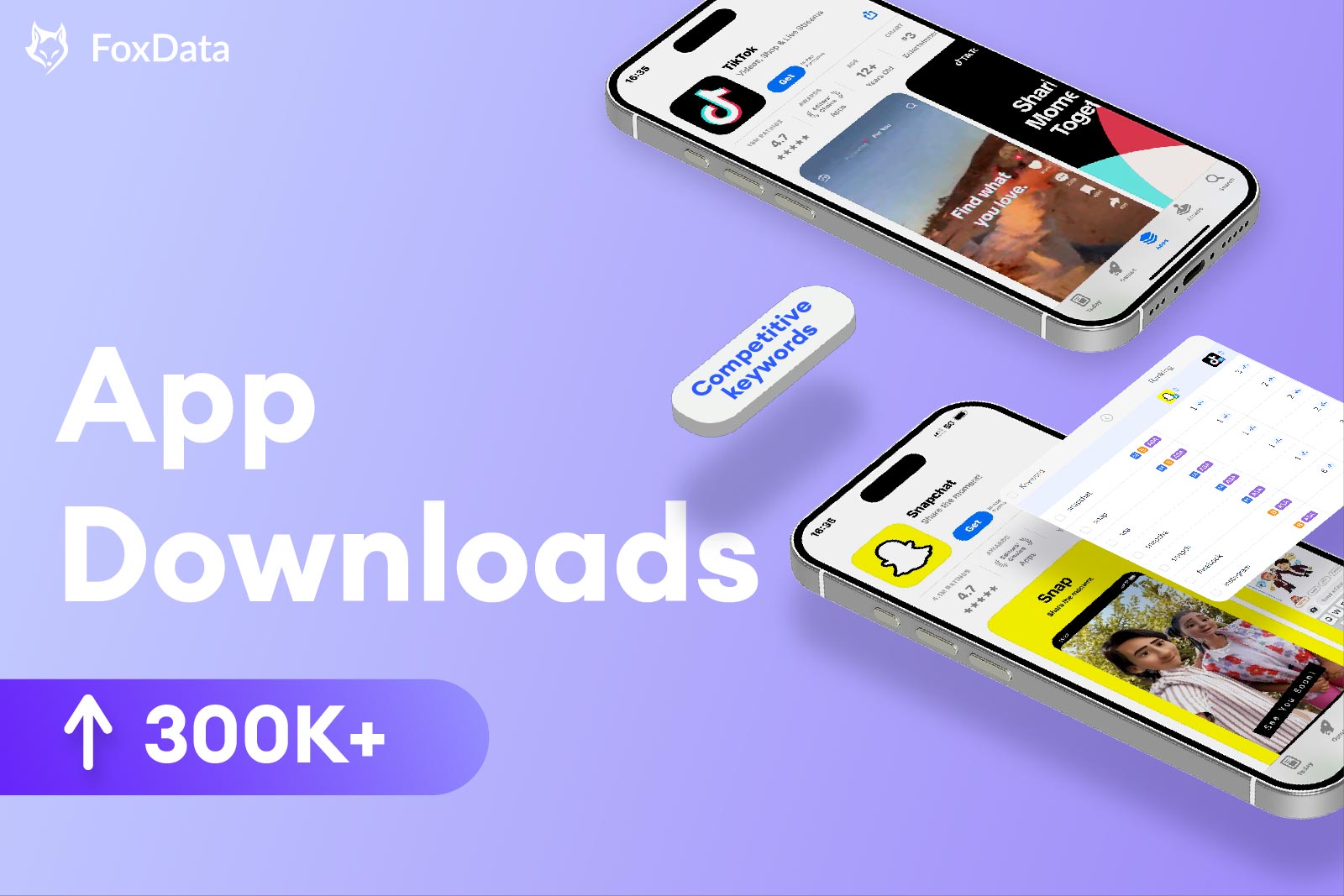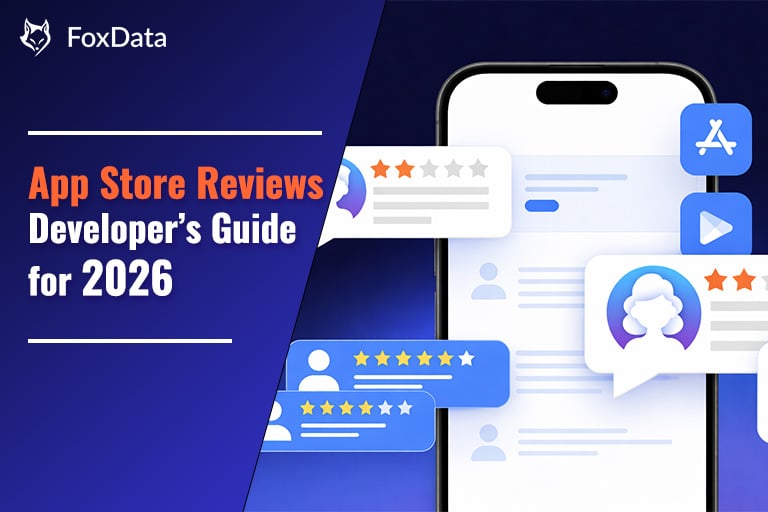Guide to Build a Semantic Core for Your App

The foundation of App Store Optimization (ASO) is the construction of a semantic core, which is crucial for the success of subsequent promotional efforts. This core is comprised of targeted keywords that are instrumental in driving app installs from search queries. Throughout this article, we will provide a comprehensive guide on how to effectively establish a semantic core.
Leveraging specialized app store optimization tools can exponentially expedite the optimization process and provide insights that are unattainable through manual methods. For the purpose of assembling the semantic core, we will be utilizing FoxData, a professional analytics tool for mobile apps.
Step 1: Market Analysis of App Store Optimization in Your Market Niche
Before embarking on the creation of a semantic core for App Store Optimization (ASO), it is essential to evaluate the relevance of ASO within your specific market niche. By doing so, you can gauge the potential effectiveness of ASO for your application.
Understanding the search behavior of users is a key step. For instance, in the Navigation category, only 34.72% of app downloads originate from App Store Search. The remaining downloads are facilitated through other channels like features within the store or advertisements. This indicates a relatively modest volume of search traffic for apps in this category.
Another critical factor is the proportion of users who download similar apps based on generic queries. If a significant number of users tend to install apps using branded queries, which include specific app names like "AliExpress," rather than unbranded queries such as "shopping" or "online store," then relying solely on ASO for promotion might be less effective.
Consider the Food & Drink category as an example, where merely 28.34% of traffic results from non-branded queries. This suggests that in this category, users are less inclined to search for apps without mentioning specific app names, thus posing a challenge for ASO.
To assess whether ASO is a suitable strategy for your app, you can utilize our tool, FoxData. It will aid in determining the necessity of conducting ASO.
👏Expert Tips: We need to collect 10 to 30 samples of your relevant category of TOP apps to analyze.
First track your selected samples and then track their keywords using Keywords Ranked. The key step is that you need to differentiate the type of keywords that are ranking high, whether they are generic or branded keywords. At this point you need to check the "downloads" which will help you know which keywords are driving most of the installs of your app and those of your competitors, giving you a full picture of the traffic sources.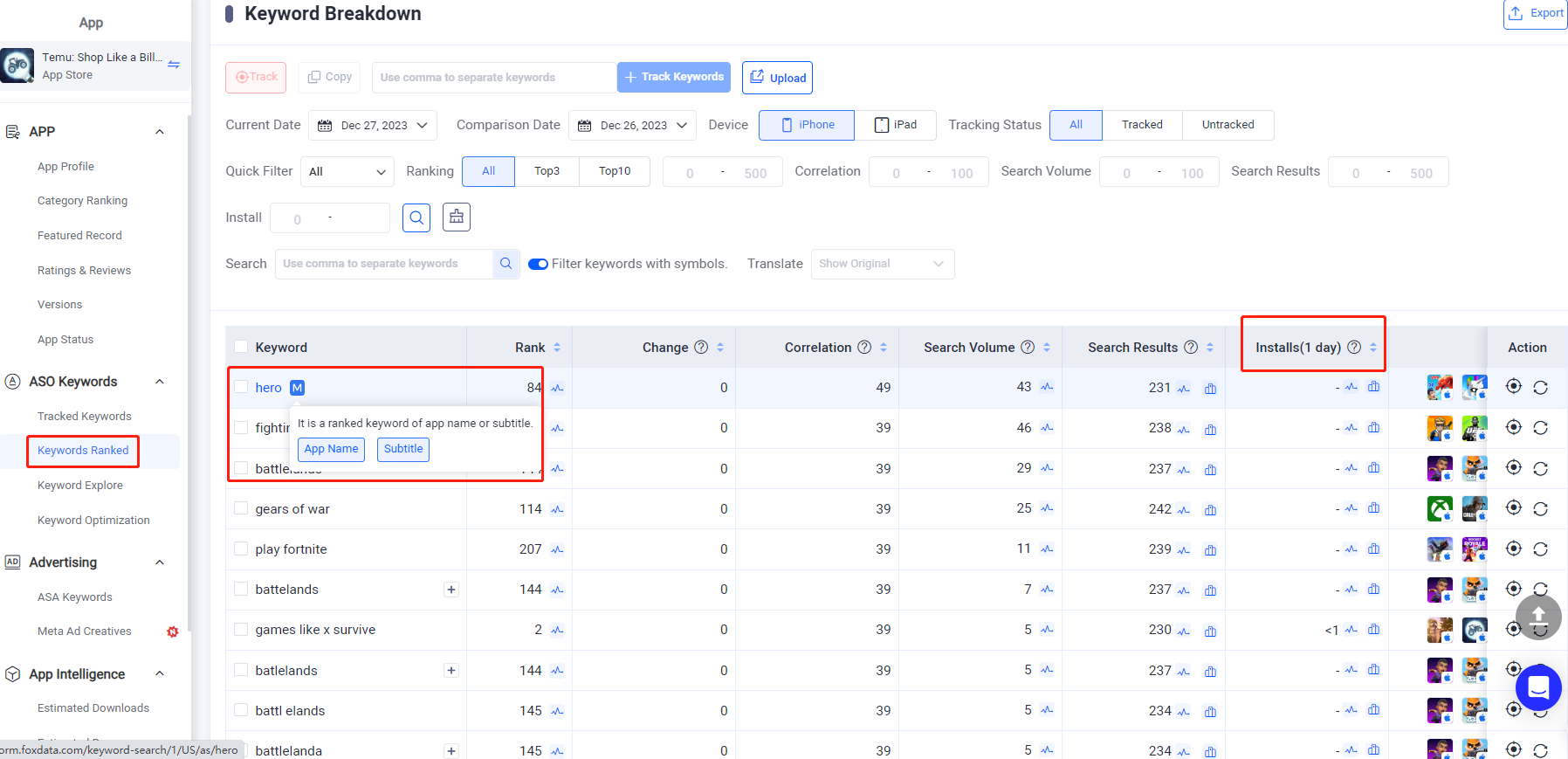
If there's anything you're not sure about, you can check out this blog that details generic keywords, branded keywords and the use of the downloads feature. 👉 Which Keyword Drives Your App Downloads? Choose the Right Keywords with FoxData
If your research indicates a need for ASO, you can proceed with gathering a semantic core. An ASO specialist typically revises the semantic core with each optimization cycle. Achieving a top-ranking position for the application usually requires a minimum of 6-8 optimization iterations.
Step 2: Choose Right Keyword Monitor Tool
The main tool to select keywords and track search queries-FoxData. Keywords Tracked is where you will form your semantic core by adding keywords from other tools.
To add keywords, add words manually by entering Keywords separated by commas.
👏Expert Tips: In Keywords Tracked, You can filter the search volume, chance score, difficulty score, correlation and other keyword index to view the keywords performance.
You can take action quickly to monitor the tracked keywords and click the icon of earth to get the global overview of the current keyword, which will help you build and monitor a semantic core.
💡Detailed instructions for Tracked Keywords you can find here.
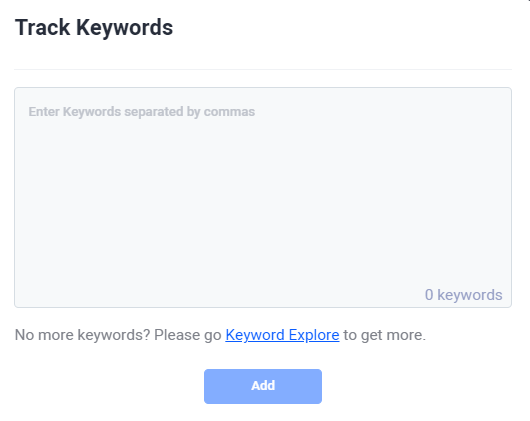
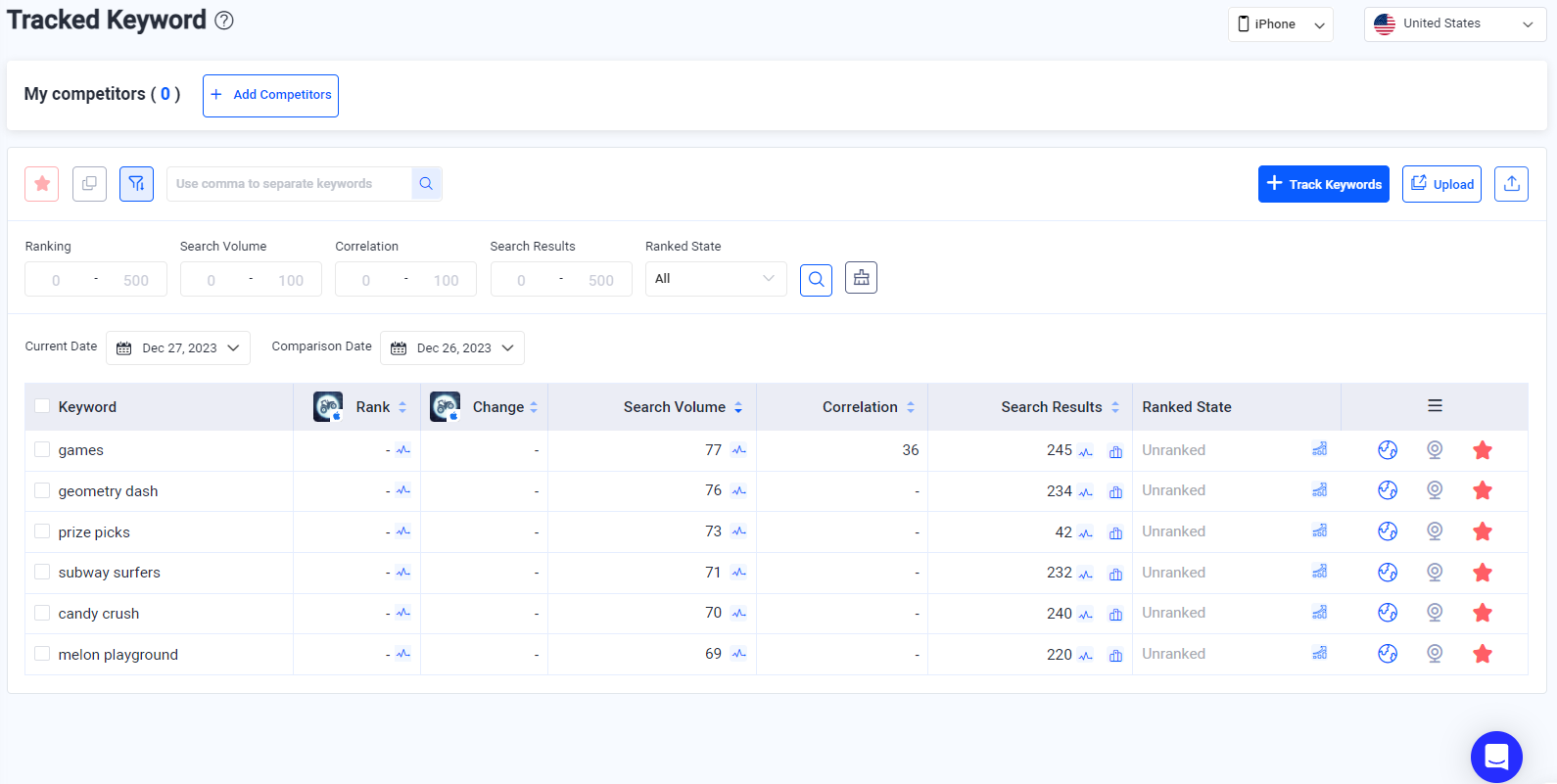
Step 3: Incorporate ASO Service Auto-Suggestions into the Semantic Core
Given the vast array of potential keyword combinations users may search for, it's impractical to manually generate every possible variant. Therefore, utilizing Keywords Explore is recommended to significantly expand your keyword list by 3 to 10 times. These services leverage algorithms to predict and suggest relevant keyword combinations, ensuring a more comprehensive semantic core for your ASO strategy.Smart Recommendations
Our algorithm tailors keyword suggestions to your app and the market, making it easy and efficient to find high-value keywords relevant to your app. By gaining in-depth insights into each keyword's performance across various dimensions, you can make informed decisions and unearth keywords that genuinely add value to your app.👏Expert Tips: You can filter Ranking, Ranked Status, Correlation, and Search Volume to find a more comprehensive semantic core. For each recommendation, you can see search results, Search Volume and installs of the selected app. Also, you can click on “Action” to add words to Tracked Keyword.
It's worth mentioning that we need to pay more attention to long-tail keywords in Smart Recommendation. Keyword phrases that contain multiple words are known as long-tail keywords. These phrases account for approximately 70% of all search traffic.
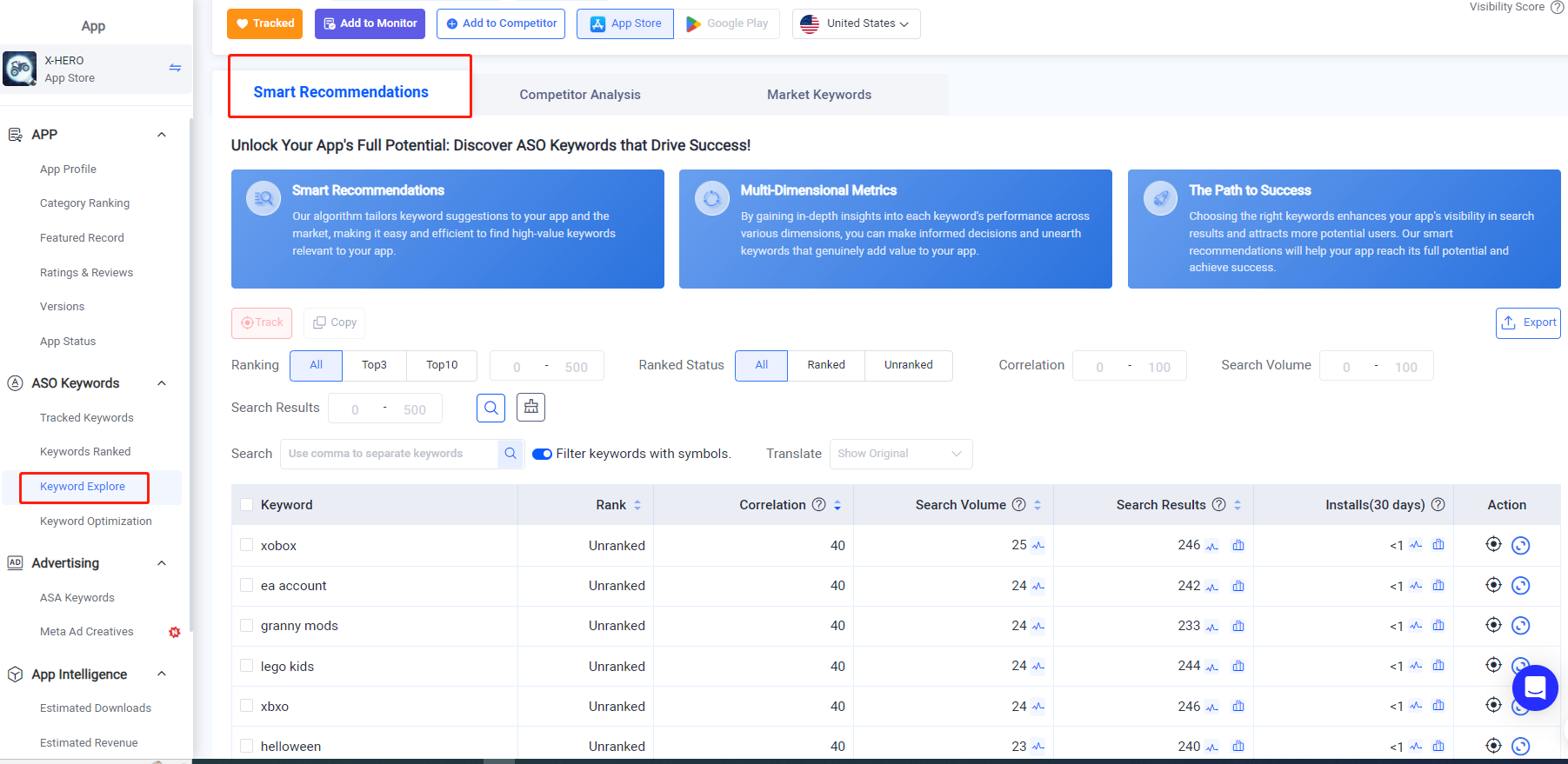
Market Keywords
Enter keyword to search and view the related information of top keywords, category keywords, associated keywords and similar keywords with the top 3 apps. For the 2nd to 4th iterations, when the majority of queries are already in use, this method proves to be highly beneficial for identifying areas of growth.👏Expert Tips: Meanwhile, you can do App Store localization, as there is translation feature in both Smart Recommendations and Market Keywords of Keywords Explore. In the App Store, using localization, you can not only adapt the application to the local market, but also increase the number of characters for keywords as a part of ASO optimization.
💡Detailed instructions for Keyword Explore you can find here.
Step 4: Anlyze Your Competitors
Competitor Analysis on FoxData will help you find many new keywords for your app. You can add competitors to your app to view more recommended keywords and comparison between them. You can add any competitor you want, but up to 4 competitors to be compared at the same time.
The keyword comparison will provide you with the search volume breakdown of shared keywords and unique keywords to gain competitive digital performance insights, explore and analyze the market and uncover market trends.
You can review the top app's related keywords and most popular keywords based on trending searches and the total number of apps ranking for them.
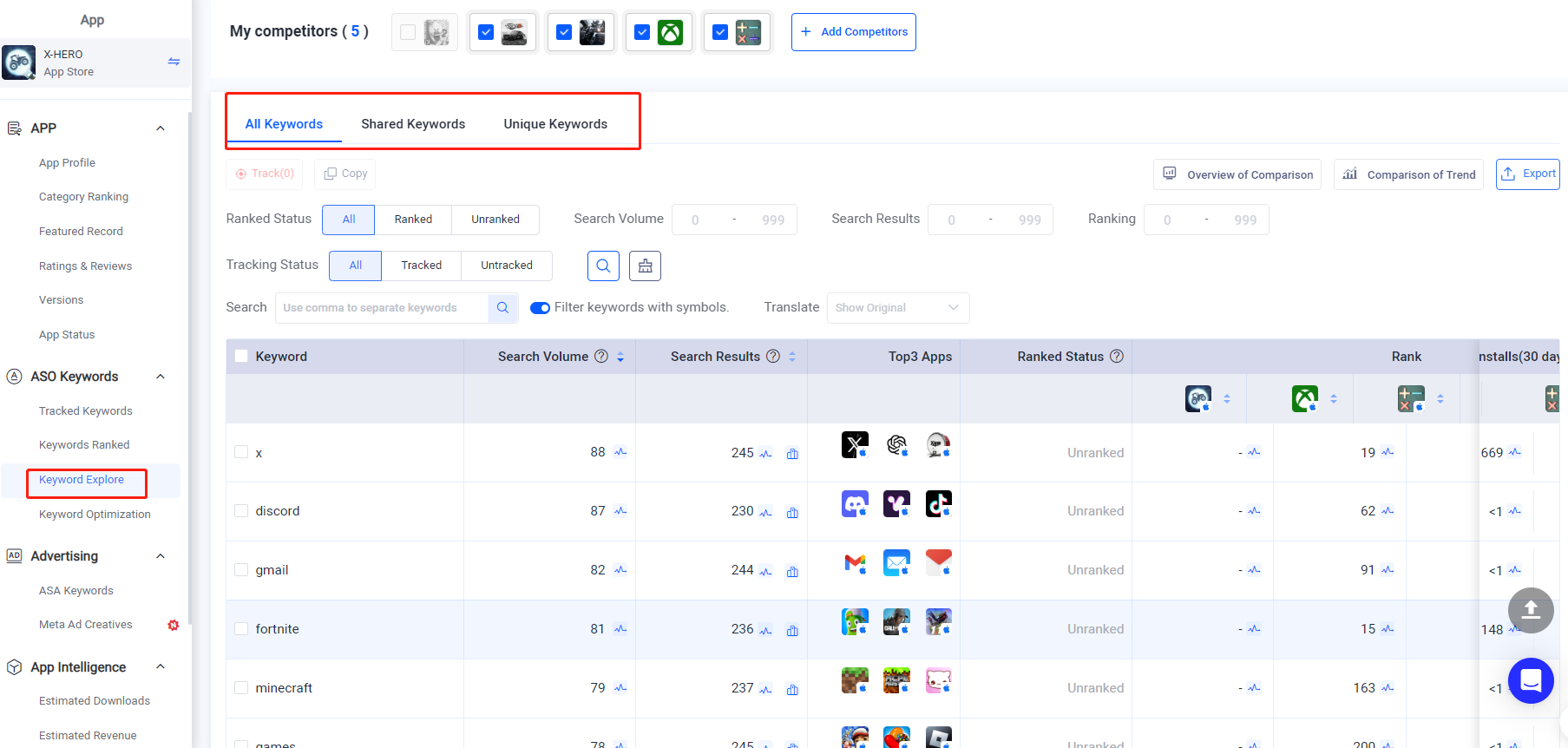
👏Expert Tips: In addition to competitive analysis, it's important to keep track of the in each country/region. It helps us to stay on top of all the trends.
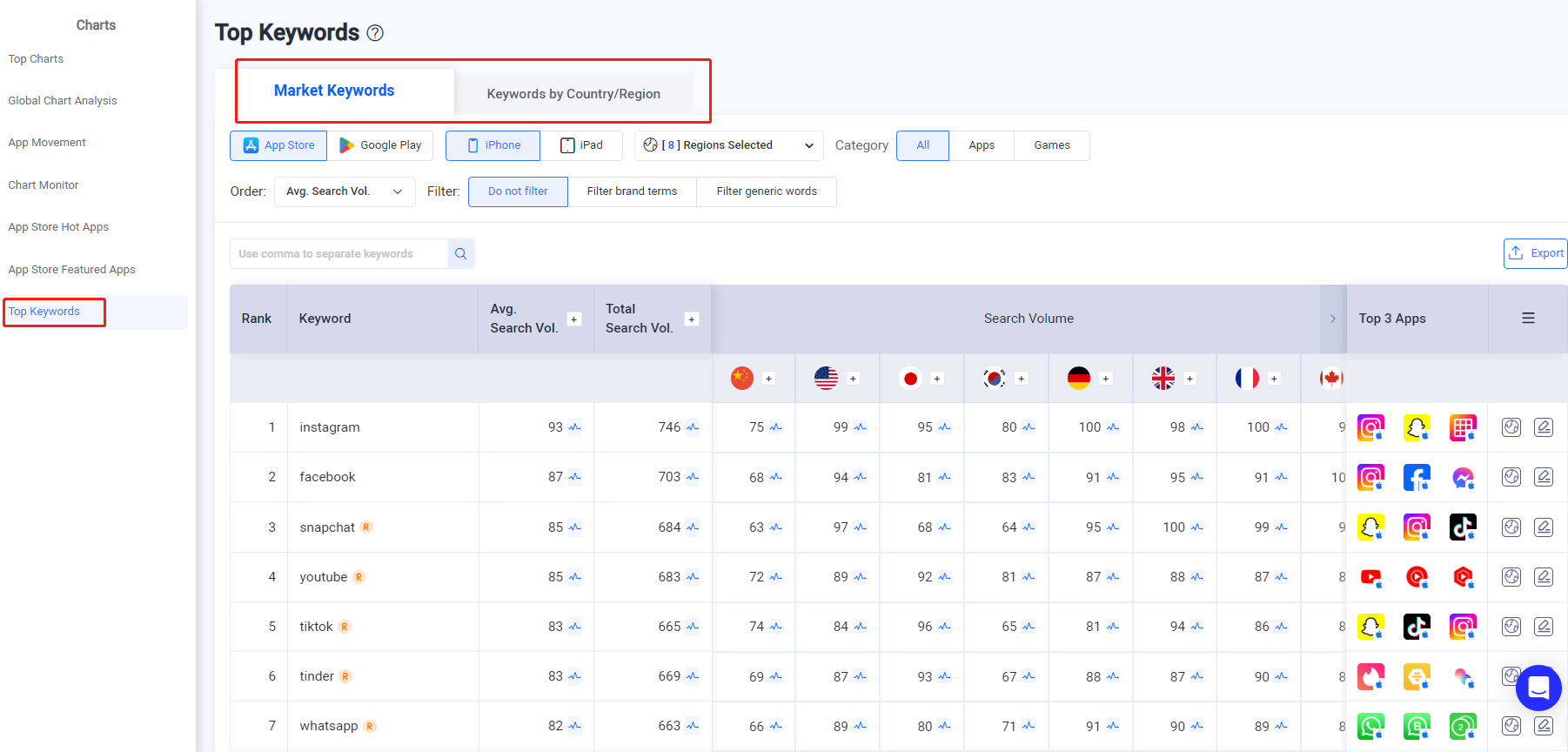
Step 5: Remove Irrelevant and Rarely-Searched Queries from the Core
Given that metadata character space is constrained, it's not feasible to incorporate every keyword. Hence, it's crucial to prioritize keywords that are most likely to drive app installations. This necessitates a thorough refinement of your semantic core, eliminating any irrelevant or low-search-volume queries.It's wise to assess the pertinence of each query while assembling your semantic core, avoiding the inclusion of any uncertain terms. Post-collection, you should revisit the list to ensure no unsuitable queries have slipped through.
For instance, if your travel app doesn't feature hotel reservation, yet your semantic core contains queries about hotel reservation, these should be promptly excised.
The task of purging non-relevant queries is often undervalued, but its importance cannot be overstressed.
Inclusion of non-relevant queries in the metadata can lead to an uptick in app uninstalls and a downturn in user lifecycle and retention metrics. Therefore, carefully curate your queries to ensure your app surfaces for users genuinely in need of its features.
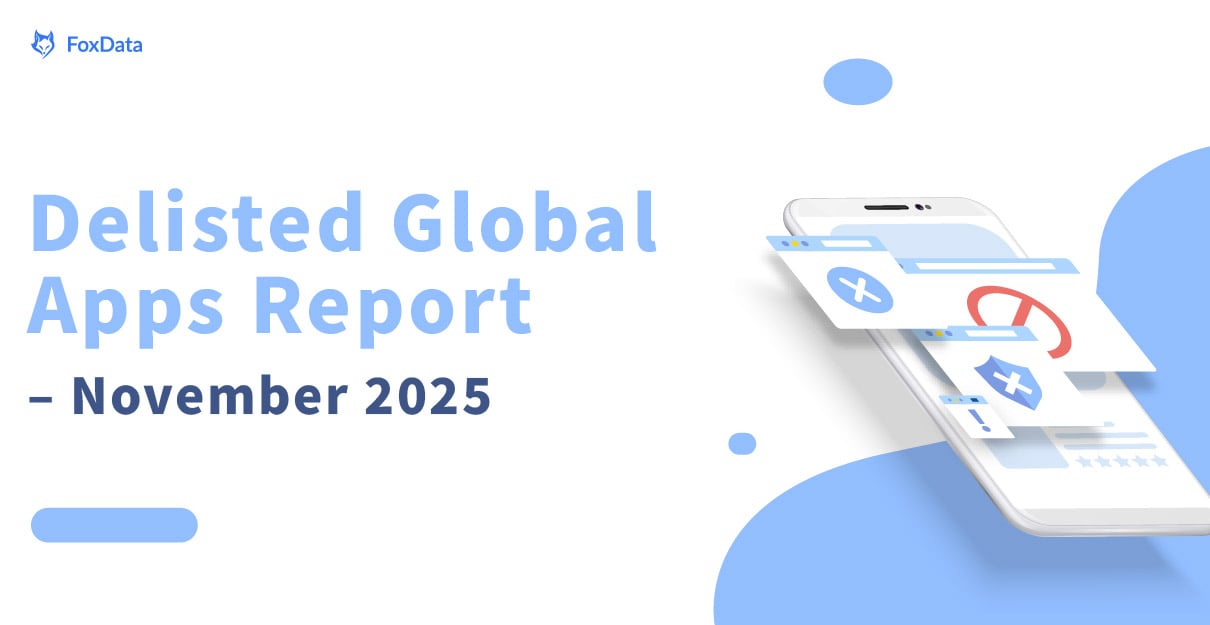
Dive into the latest global app delisting data to uncover key trends, platform insights, and what app removals reveal about the app market in November 2025.
Welcome to read more blogs about ASO Strategies.
Or you may want to optimize your app now; just join FoxData and start your keyword research! Get started with your free trial today!
Or do you want to find a professional team to increase your app's user acquisition? FoxData's sub-brand, FoxAdvert, tailors App Store Optimization services to fit your unique goals!


